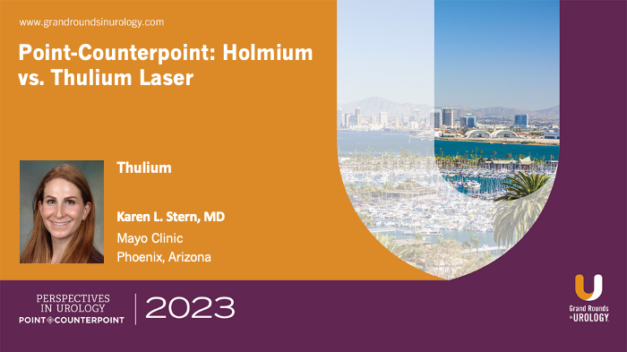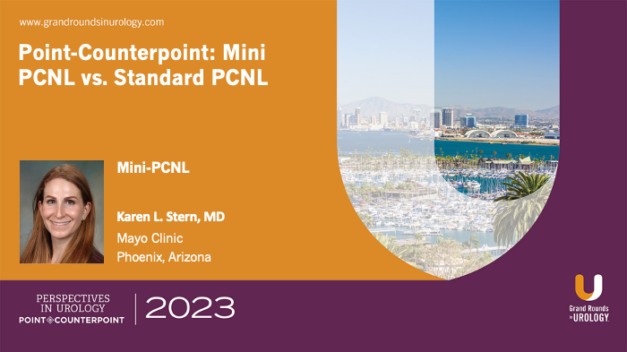Point-Counterpoint: HoLEP vs. GreenLightTM PVP – HoLEP
Karen L. Stern, MD, discusses holmium laser enucleation of the prostate’s (HoLEP’s) greater efficiency, safety, and durability compared to GreenLightTM photosensitive vaporization of the prostate (PVP). Dr. Stern references a 2020 study that found improved outcomes with HOLEP over PVP regarding operative time, tissue removal, International Prostate Symptom Score (IPSS) at one year, Qmax, post-void residual volume (PVR), and post-operative prostate-specific antigen (PSA). Dr. Stern then discusses small-volume prostates, emphasizing HoLEP’s effectiveness.
However, she acknowledges that PVP and transurethral resection of the prostate (TURP) are acceptable modalities in treating small-volume prostates, contrary to the treatment of large-volume prostates. Dr. Stern then reviews American Urological Association (AUA) guidelines. These note that HoLEP may serve to treat BPH and lower urinary tract symptoms (LUTS) regardless of prostate size. The AUA further notes that PVP may be less effective for large-volume prostates.
In a review of other factors, the AUA cites a 2020 study showing that PVP had a bladder outlet obstruction retreatment rate of about 27% compared to HoLEP at 5%. Dr. Stern also explains that the majority of HoLEP patients experience same-day catheter removal and discharge from hospital stays. She then evaluates the safety profile of HoLEP and PVP, finding a low rate of perioperative complications with HoLEP and high rates of urgency with PVP. Dr. Stern highlights the increased quality of life produced by HoLEP and its increased durability, boasting a reoperative rate of less than 1% per lifetime. Dr. Stern completes her discussion by reiterating HoLEP’s status as the gold standard in the surgical treatment of BPH.
This lecture is part of a Point-Counterpoint debate. Its opposing lecture is “Point-Counterpoint: HoLEP vs. GreenLightTM PVP– GreenLightTM PVP.”
Read More




